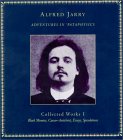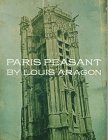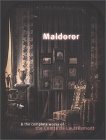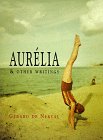
| Associations
Texts Biography Chronology Photo Gallery Book Store by Louis Aragon, Simon W. Taylor (Translator) De Nerval |
................................................................................................
The
Blue Flowers by Raymond Queneau, Barbara Wright (Translator)
The Last Days : A Novel by Raymond Queneau, Barbara Wright (Translator), Vivian Kogan (Introduction) Sad and funny and beautiful, Queneau watches the world and portrays the smallest of things in the most unique way. Celebrating the simpleton, Queneau looks back at his student years. His head is stuck in books. He meets few friends. Outside, the world swindles and connives and lies and quips. Outsiders take note, this book settles long after the last page is turned. A special, special book. A great introduction to the world of Queneau. Zazie in the Metro (Penguin Classics) by Raymond Queneau, Barbara Wright (Translator), Gilbert Adair (Introduction) Queneau offers a caleidoscope of satirical views about Paris and the people there, and he populates his novel with truly bizarre guys. Zazie is a perhaps twelve-year old girl that comes to Paris with her mother for some days; the mother visits her lover, and Zazie visits her uncle Gabriel. Gabriel works as a dancer (with a balley costume) in a gays' night-club without being homosexual himself. Some of his friends (a shoemaker, a pub owner, a parakeet, a taxi driver, Gabriel's wife, an almost-rapist) make the scene complete. Oulipo
Laboratory : Texts from the Bibliotheque Oulipienne (Anti-Classics of Dada.)
by Raymond Queneau (Editor), Italo Calvino, Paul Fournel, Jacques Jouet,
Harry Matthews (Translator), Harry Mathews, Claude Berge Founded
in late 1960 in France, at a colloquium on the work of Raymond Queneau,
in order to research new writing by combining mathematics and literature
(and also to just horse around) the Oulipo (The Ouvrior de LittÈrature
Potentielle or Oulipo (The Workshop of Potential Literature)) expanded
to include all writing using self-imposed restrictive systems.
|




